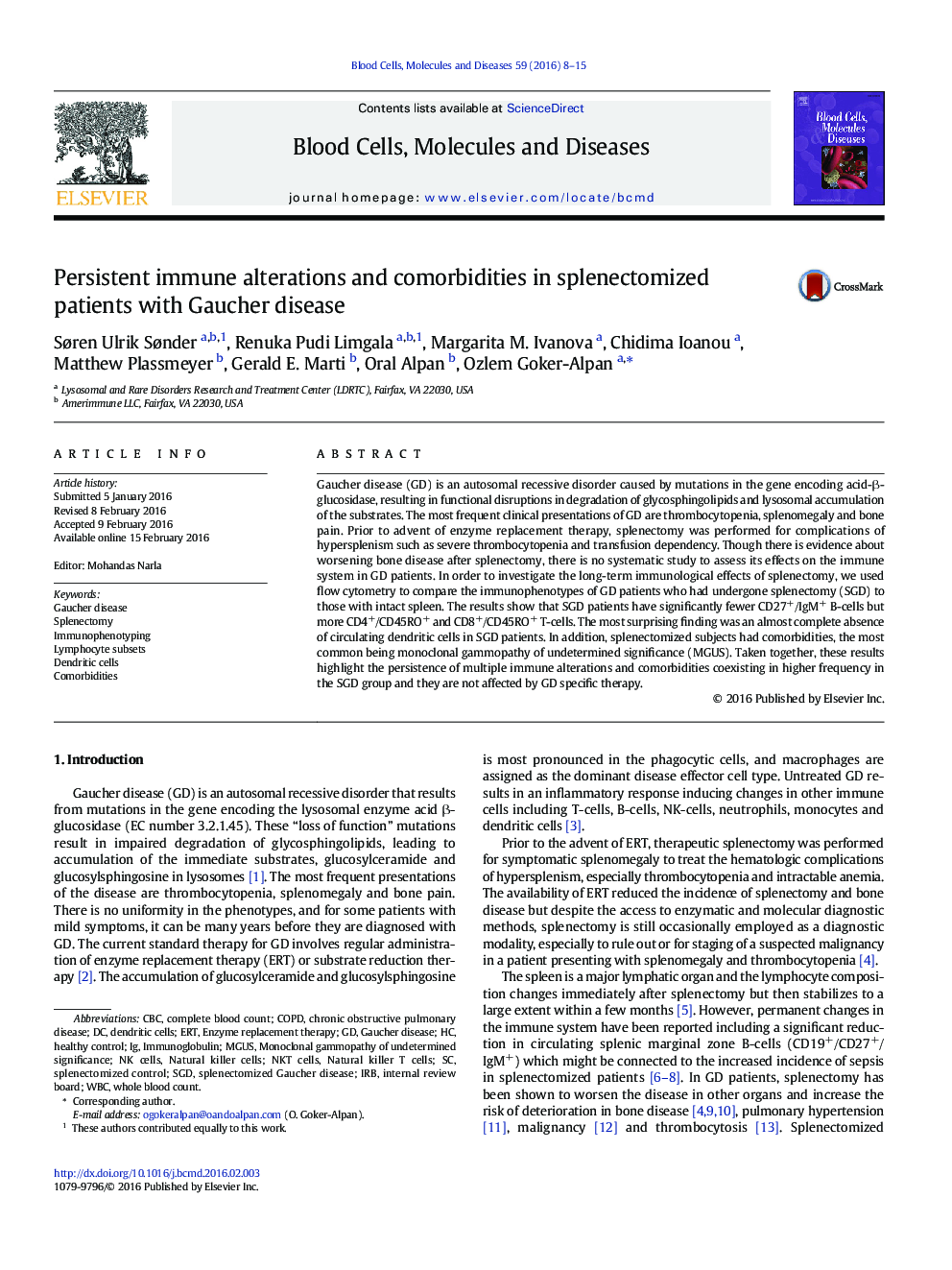| کد مقاله | کد نشریه | سال انتشار | مقاله انگلیسی | نسخه تمام متن |
|---|---|---|---|---|
| 5913335 | 1570401 | 2016 | 8 صفحه PDF | دانلود رایگان |
Gaucher disease (GD) is an autosomal recessive disorder caused by mutations in the gene encoding acid-β-glucosidase, resulting in functional disruptions in degradation of glycosphingolipids and lysosomal accumulation of the substrates. The most frequent clinical presentations of GD are thrombocytopenia, splenomegaly and bone pain. Prior to advent of enzyme replacement therapy, splenectomy was performed for complications of hypersplenism such as severe thrombocytopenia and transfusion dependency. Though there is evidence about worsening bone disease after splenectomy, there is no systematic study to assess its effects on the immune system in GD patients. In order to investigate the long-term immunological effects of splenectomy, we used flow cytometry to compare the immunophenotypes of GD patients who had undergone splenectomy (SGD) to those with intact spleen. The results show that SGD patients have significantly fewer CD27+/IgM+ B-cells but more CD4+/CD45RO+ and CD8+/CD45RO+ T-cells. The most surprising finding was an almost complete absence of circulating dendritic cells in SGD patients. In addition, splenectomized subjects had comorbidities, the most common being monoclonal gammopathy of undetermined significance (MGUS). Taken together, these results highlight the persistence of multiple immune alterations and comorbidities coexisting in higher frequency in the SGD group and they are not affected by GD specific therapy.
Journal: Blood Cells, Molecules, and Diseases - Volume 59, July 2016, Pages 8-15
